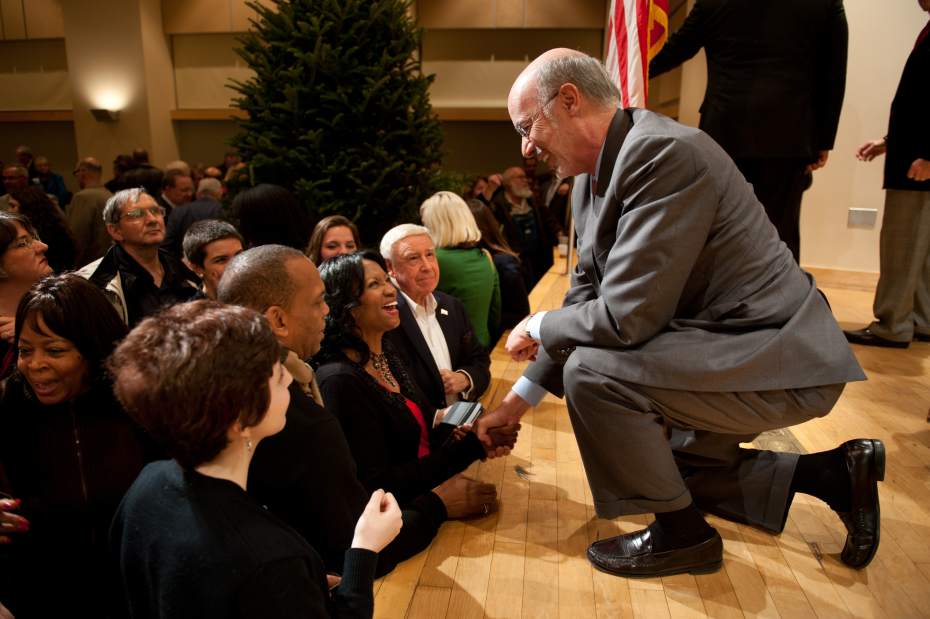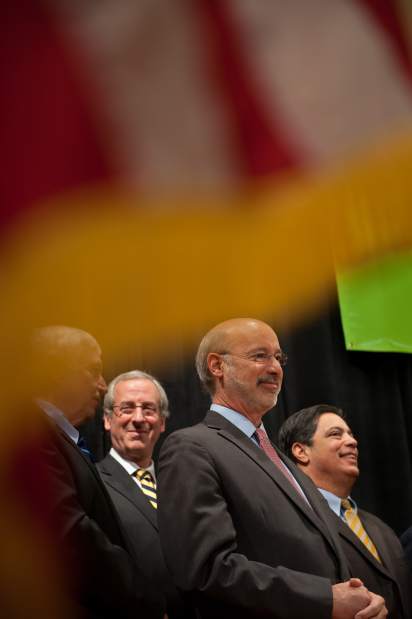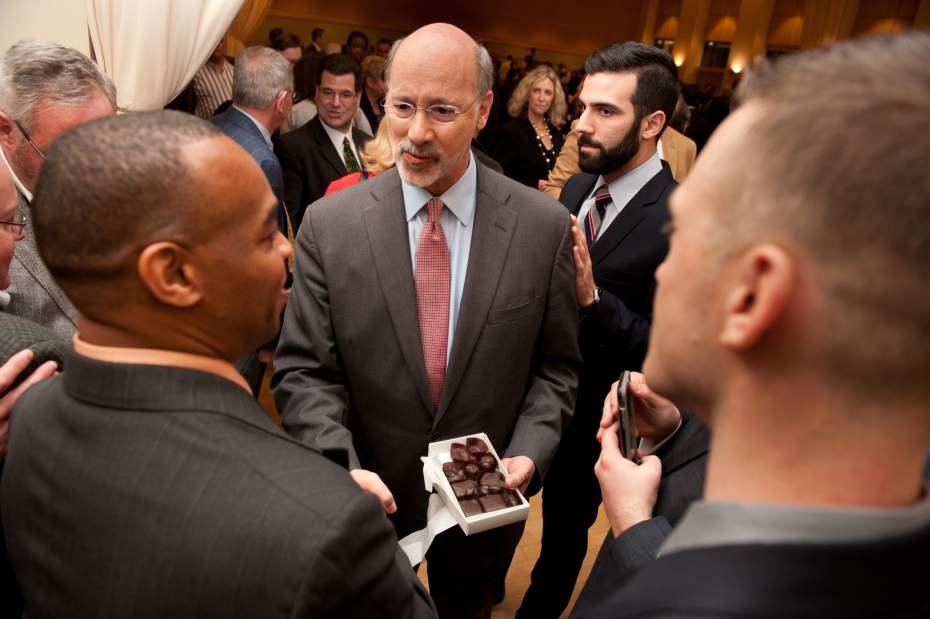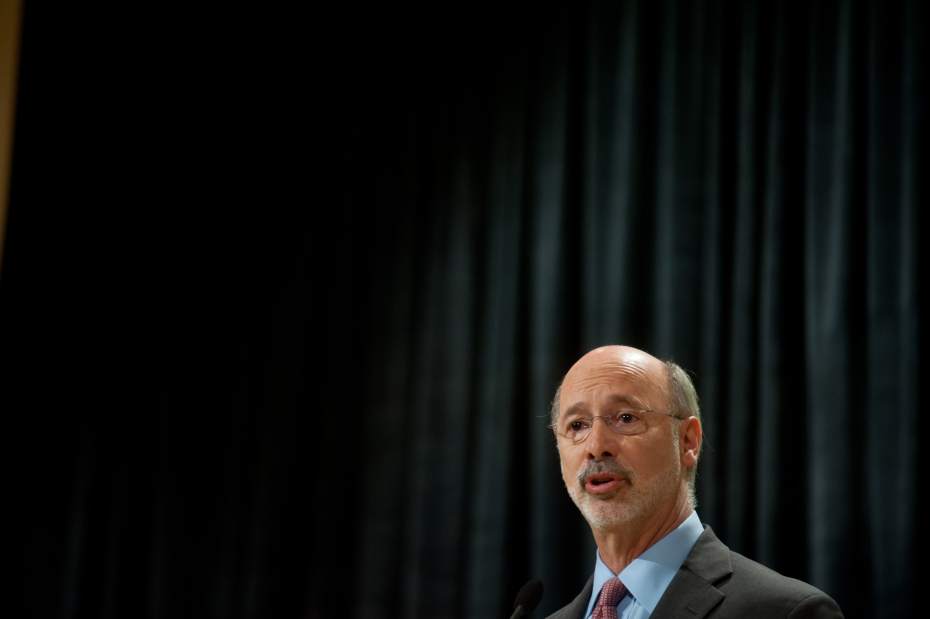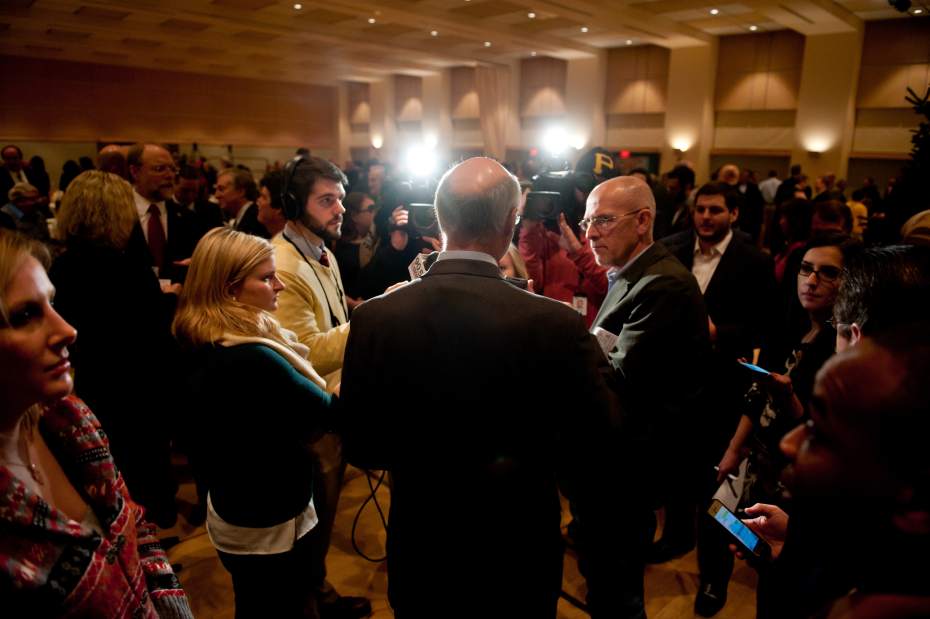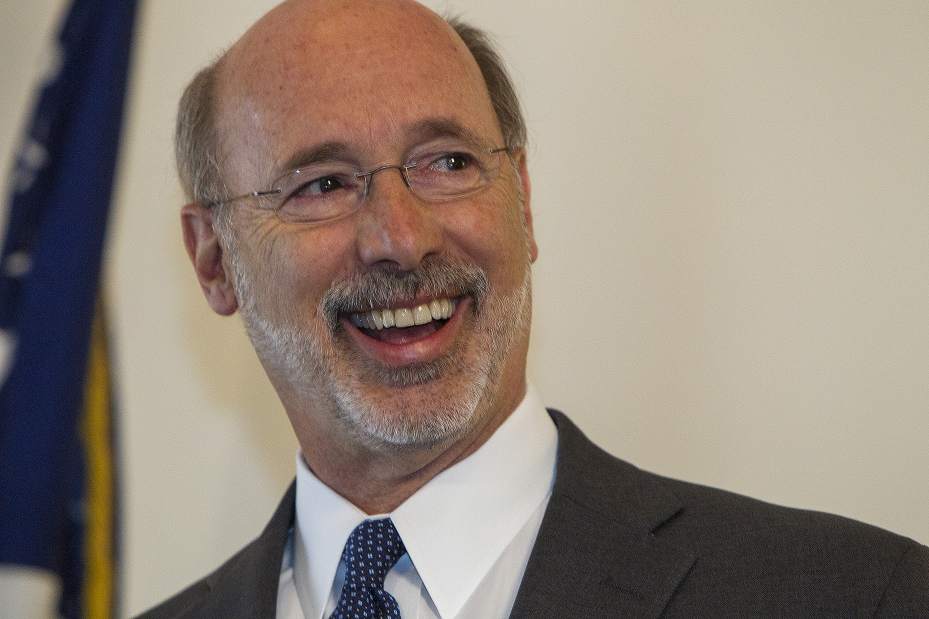Gov.-elect Wolf names advisers, Democratic bigwigs to transition team
Gov.-elect Tom Wolf is preparing to take office with a little help from Western Pennsylvanians, former Democratic administration bigwigs and his trusted advisers.
Since winning the governor's office on Nov. 4, Wolf, 66, of York County has assembled a transition team with experts from across the state in higher education, nonprofits, labor and law. The team will help him assemble his cabinet and understand the scope of challenges facing state government, including a projected $2 billion deficit in his first budget.
“My goal is to make sure that when I get to Harrisburg and am inaugurated as governor, that I'm ready to get to work, and that there's as few hindrances to my getting to work as possible,” Wolf said.
Wolf's steering committee held its first meeting Thursday morning. John Fry, president of Drexel University, is the team's chair. Community activist and consultant Cynthia Shapira of Allegheny County is one of three vice chairs.
Five Western Pennsylvanians on the 11-member steering committee include: Service Employees International Union Pennsylvania President and Pittsburgh resident Neal Bisno; Aradhna Oliphant of Leadership Pittsburgh; former University of Pittsburgh Chancellor Mark Nordenberg; Murrysville Mayor Robert Brooks; and Pittsburgh-based diversity consultant Carl G. Cooper.
Fry said the team is working on assembling department-specific committees, such as education or transportation. They'll aim to identify the most pressing issues in the department and suggest ways to solve them, and report their findings to Wolf by his Jan. 20 inauguration. Teams also will recommend potential Cabinet secretaries.
“There's going to be a really broad body of knowledge developed that we give incoming cabinet members,” Fry said.
Wolf named his chief of staff, Katie McGinty, his one-time primary opponent, who aided his campaign by running the pro-Democratic Fresh Start political action committee. Wolf would not say when he plans to make other announcements.
When he decides, he's seeking three main characteristics: policy expertise, inspiration to help Pennsylvania and “people who see themselves as stewards of democracy,” Wolf said.
“I want to have an administration that reflects the diversity of the population of Pennsylvania,” he said.
Selecting cabinet secretaries is a matter of preference, said David Sweet, who was executive director to Gov. Ed Rendell's transition team and his campaign manager. Sweet said Rendell picked his cabinet from a mix of officials he knew and trusted. Others were chosen from recommendations.
Not all cabinet officials were named by inauguration.
“It's better to do it right than to do it quickly,” said Sweet, who is now counsel to law firm and lobbying group Buchanan Ingersoll Rooney.
Sweet said it's also not unusual to see transition team members plucked from past administrations. In 2002, Rendell worked with allies of now-U.S. Sen. Bob Casey, D-Scranton, with whom he had engaged in an aggressive primary battle.
“These were people with experience, and you weren't going to turn your back on them just because they had been affiliated with someone else you'd run against in the primary,” Sweet said.
Wolf, who once served as Rendell's secretary of Revenue, tapped former Secretary of Public Welfare Estelle Richman as his transition team's Medicaid adviser. Dauphin County attorney David Barasch, who worked for Democratic Gov. Bob Casey and under Wolf in the Department of Revenue, sits on the steering committee. Rendell, who donated to Wolf's campaign, is heading the inauguration committee.
Mary Soderberg, who was Rendell's budget secretary, is heading the 13-member Budget Deficit and Fiscal Stabilization Task Force. Also on the task force is Michael Newsome, chief financial officer for Wolf's longtime family business, The Wolf Organization. Spokesman Jeff Sheridan said Newsome has three decades of financial experience and is someone Wolf “trusts very much.”
Fiscal issues will dominate Wolf's early tenure. This week, Gov. Tom Corbett's Budget Secretary Charles Zogby said the state faces a $2 billion deficit heading into the 2015-16 fiscal year.
Wolf's first proposed budget is due in March. He takes office with a plan to increase education funding, tax Marcellus shale drilling and negotiate with a Republican-controlled General Assembly.
“The overall goal is to understand the depth of the budget hole, and there's a lot that we don't know,” Sheridan said. “The Corbett administration's maxed out their borrowing. The economic situation is dire.”
In an attempt to save tax dollars from the outset, the transition will be privately funded. Sheridan said donors will be disclosed before the inauguration, and any late donors will be disclosed within 30 days.
Moe Coleman, director emeritus of the University of Pittsburgh Institute of Politics, said transitions are critical periods because of the types of decisions and plans that are made.
“They do help provide a sense of agenda,” Coleman said, “but mainly, they also help him decide how his government's going to be run.”
Melissa Daniels is a Trib Total Media staff writer. She can be reached at 412-380-8511 or mdaniels@tribweb.com.

